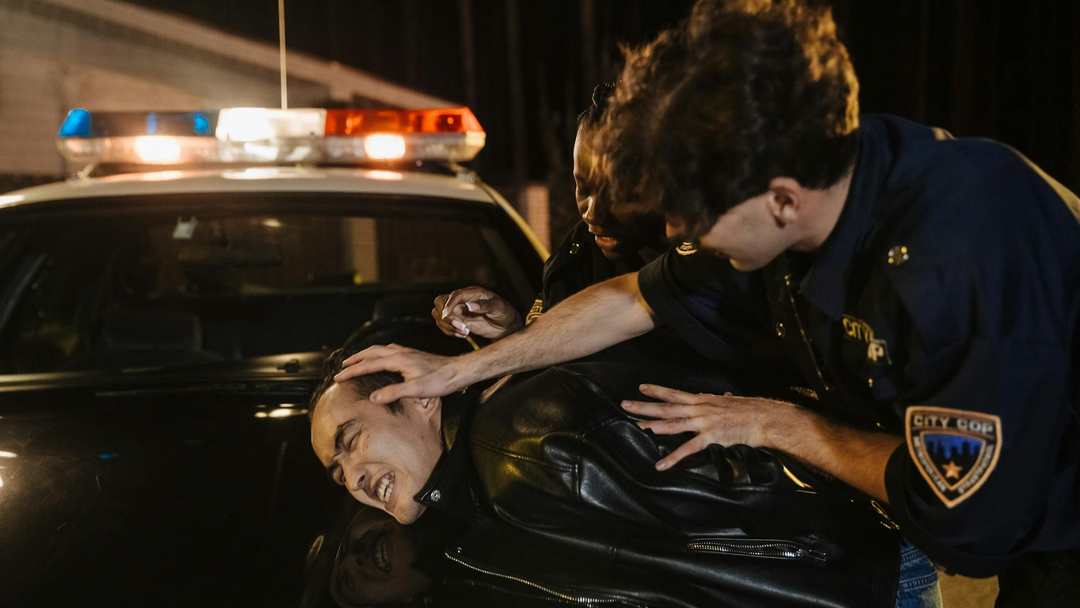The Biden administration once again defends a ban in federal court, arguing that people who use marijuana should be prohibited from purchasing or possessing firearms. They claim that this restriction is supported by historical precedent and that individuals who...

Unlawful Possession of a Controlled Substance in Michigan
Unlawful Possession of a Controlled Substance in Michigan
In Michigan, being caught with illegal drugs can lead to serious consequences. The state has strict laws on drug possession, and unlawful possession of a controlled substance is one of the most common charges.
Here, we’ll break down what the law says, the punishments, and possible defenses.
#1 Step to take – Invoke your 5th amendment right and ask for a lawyer. No matter what the police say or what they promise you!!
What Is Unlawful Possession of a Controlled Substance?
Under Michigan law, possession of a controlled substance means having drugs or narcotics that are illegal without a valid prescription. These substances can include illegal street drugs like heroin, meth, cocaine, or even prescription drugs like Oxycodone or Xanax if you don’t have a prescription.
Michigan categorizes controlled substances into different “schedules” based on how dangerous or addictive they are. The more dangerous the drug, the harsher the penalties. For example, Schedule I drugs, like heroin, are seen as highly addictive and have no accepted medical use, while Schedule II drugs, like certain pain medications, can be prescribed by a doctor but still carry serious penalties if abused.
The law governing unlawful possession of controlled substances can be found in MCL 333.7403. This section outlines which substances are illegal and what happens if you’re found in possession of them.
Penalties for Unlawful Possession
The punishment for possessing a controlled substance depends on several factors:
What drug you had, how much you had, and your prior criminal record.
- Schedule I or II Narcotics (like heroin or cocaine): If caught with less than 25 grams, you could face up to 4 years in prison and/or fines of up to $25,000.
- 25 to 50 grams: Up to 4 years in prison and a fine up to $25,000.
- 50 to 450 grams: Up to 20 years in prison and a fine up to $250,000.
- More than 1,000 grams: Life in prison and a fine of $1,000,000.
For Schedule III or IV drugs (like prescription medications without a prescription), you may face up to 2 years in prison and/or fines up to $2,000.
You can find the penalties for different types of drugs under MCL 333.7401.
Use You Right To Remain Silent
If you have been accused or charged with a crime.
Say nothing to anyone. Talk to us first.
Our firm is experienced in both State and Federal courts defending clients.
CALL NOW
Possible Legal Defenses
If you’re charged with unlawful possession, there are legal defenses that could help your case. Some of the most common include:
- Lack of Possession: You may argue that the drugs weren’t yours or that you didn’t have control over the drugs.
- Illegal Search and Seizure: If the police conducted an unlawful search of your property (for example, searching your home without a valid warrant), evidence collected during that search could be thrown out.
- Medical Necessity: If you had the drugs for a legitimate medical purpose but didn’t have the prescription with you, that could be a defense.
- Entrapment: If you were tricked or pressured into possessing the drugs by law enforcement, you may have an entrapment defense.
How Komorn Law Can Help
If you’ve been charged with unlawful possession of a controlled substance, it’s crucial to have an experienced legal team by your side. Komorn Law has over 30 years of experience defending clients in both state and federal courts. They specialize in complex criminal defense cases and have a deep understanding of Michigan drug laws.
Komorn Law can help you:
- Evaluate the evidence against you
- Challenge the legality of the search or arrest
- Negotiate with prosecutors for reduced charges
- Fight for your rights in court
Their expertise in drug cases, coupled with their knowledge of search and seizure laws, can make all the difference in getting charges dismissed or reduced.
If you’re facing charges for unlawful possession of a controlled substance in Michigan, call Komorn Law (248) 357-2550 for a free evaluation today.
Note: This article provides a general overview and does not substitute for legal advice. Anyone charged with a crime should consult an attorney for specific legal guidance.
Related Articles – Michigan Laws
You’re too stupid to store a gun properly
Is a Verbal Agreement Legal?
Is Oral Legal?Verbal agreements, also called oral contracts, can be legal and enforceable in Michigan, but with some limitations. Here's a breakdown: Generally Enforceable: Michigan law recognizes verbal contracts as valid if they meet the standard elements of a...
Squatters and the Law in Michigan
Squatters and YouSquatting, in one definition is the act of occupying a property without legal permission, can be a headache for both property owners and squatters themselves. Sorry to cause you a such a headache squatter. Michigan has specific laws addressing...
Adverse Possession in Michigan – Can Someone Claim Your Property?
Understanding Adverse Possession in MichiganMichigan recognizes adverse possession, a legal doctrine allowing someone to acquire ownership of real property they've occupied for a specific period, even without a formal title.The Statute: MCL 600.5801 The relevant...
Red Flag Rules for Extreme Risk Protection Orders-Firearms Act
Michigan Supreme Court - These changes follow the creation of the Extreme Risk Protection Order Act and amendments to the Firearms Act. Red Flag Laws.Effective February 13, 2024On February 6, 2024, the Michigan Supreme Court issued ADM File No. 2023-24, which adopts...
Synthetic Marijuana (Synthetic Cannabinoid Homologues)
Spice/ K2, Synthetic MarijuanaWhat is Spice/ K2, Synthetic Marijuana? K2 and Spice are just two of the various trade names or brands for synthetic designer drugs that aim to replicate THC, the primary psychoactive component of marijuana. These designer synthetic drugs...
Michigan Court Rules
MICHIGAN COURT RULES OF 1985Updated February 13, 2024 The Michigan Court Rules The Michigan Rules of Court are the rules adopted by the Michigan Supreme Court to govern Michigan’s legal system and the judges, lawyers, and other professionals who are charged with...
Understanding Michigan’s Cyberbullying Law (MCL 750.411x)
Understanding Michigan's Cyberbullying Law With the ever-expanding digital landscape, cyberbullying has become a harsh reality for many. Michigan, recognizing its seriousness, has established specific laws to address this issue. Here's some things you need to knowWhat...
Involuntary Manslaughter Charges and Penalties in Michigan
Involuntary Manslaughter Charges and Penalties in MichiganHere's things you should to knowWhat is Involuntary Manslaughter in Michigan? Involuntary manslaughter differs from murder in that it lacks intent to kill. In Michigan, it is somewhat defined as the killing of...
The Expanding List of Crimes that Restrict Gun Ownership
The Expanding List of Crimes that Restrict Gun Ownership in MichiganHere are the LawsDomestic Violence The legislature passed a package of bills that add subsets to certain misdemeanor offenses (identified below) for offenses involving domestic relationships. See 2023...






















